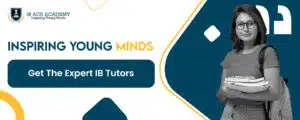The International Baccalaureate Diploma Programme is among the most rewarding programs in a student’s life. The Diploma Programme (DP) curriculum is made up of six subject groups and the DP core, comprising Theory Of Knowledge (TOK), Creativity, Activity, Service (CAS), and the Extended Essay. As rewarding as it can be, it is definitely not a cakewalk. The students undergo rigorous testing and are graded on a scale of 1–7 for each of the six subjects. Three additional points are rewarded for the DP core, i.e., TOK, EE, and CAS. So, a student can obtain a maximum of 45 grade points. A minimum of 24 points are required for a student to pass the examination.
Well, it takes a lot of effort to ace that program and requires hard work and the ability to challenge oneself beyond one’s capabilities. This brings into the picture the need for a tutor, or rather, guidance.
Taking tuition for the IBDP program is optional and varies depending on the student’s requirements. However, we have tried to incorporate everything you might need about IBDP tuitions. The following pointers will help you navigate yourself to assess the need for tuition as well as where to seek it.
- Take A Pilot Test
A pilot test is a small test to examine your present situation. This test comprises mock test-like questions to ascertain your grasp of the topic. This will give you a clear picture of your standing, and you can ascertain your weaknesses to know the areas that require tutoring.
Let’s say you take a test of IB Biology and score a 3 or 2, which might give you an indication that this is your weak area. On the other hand, if you score a 6 or 5 in Mathematics, it may signal that you can work on it on your own. This pilot test reveals the subjects and areas where you would require tutoring.
- Understand Your Learning Style
We are all different learners. Some of us learn well with the physical presence of a teacher, while others feel comfortable with the Zoom call. Some of us are happy to study in a group environment where competition boosts our abilities, while others prefer one-on-one classes to enhance their knowledge. A little introspection and a few demo classes can get you to the level of knowing your learning style. Your learning style at large determines the type of tuition that would be most suitable for you.
- Availability Of Tutors
There are a lot of tutors who teach the same subject. What may suit you, however, is very subjective. As discussed in the previous point, you need to understand your learning style to determine the type of tutor you need. This can be determined by going through the availability of tutors in brick and mortar, i.e., those who take physical classes near your geographical proximity, as well as researching the online options. Some online tutors are IB Ace Academy, Baccalaureate Classes, IB Tuition, etc. You can navigate through their curriculum and choose the right one for you.
- Picking the right one
Tutors are like fish in a pond. There are so many and so similar in many contexts. It becomes pretty difficult to judge.
Here’s what you can do:
You can go through the websites of these tutors. Get a personal call and inquire about the services. Jot down the pros and cons for each tutor. Once you have done this with a considerable number of tutors, start dissecting them individually to shortlist a few. The shortlisting criteria vary for each student. For example, You should go with the one with good strength but not too strong to get personal attention. And a few demo classes are a bonus. After the demo classes, you will have a fair idea of whether or not you want to choose this particular tutor.
- Determine Your Resource Pool
After the above discussion, you can check out your resource pool. A resource pool is the amount of resources available to you in the form of notes, previous year papers, etc. This helps you get the materials that need to be added to the tutor you choose, as well as guidance as to which books or notes are best to follow.
- It’s Okay To Change Your Mind
Don’t stick with a teacher because you made a choice. Sometimes, the tutor and you might not be the right fit and might not get your desired results. If you are taking tuition from an academy, ask them to change the tutor. If nothing good happens, drop the teacher and switch. Remember, your time is more precious than wasting it on a lecture just because you paid for it.
- Don’t Underestimate Self-Study
There’s no replacement for self-study. Never rely on the tutor entirely. Aid your preparation with self-study, which will yield the best results.
Luck favours the brave, so brace for every difficulty and give your best shot.


